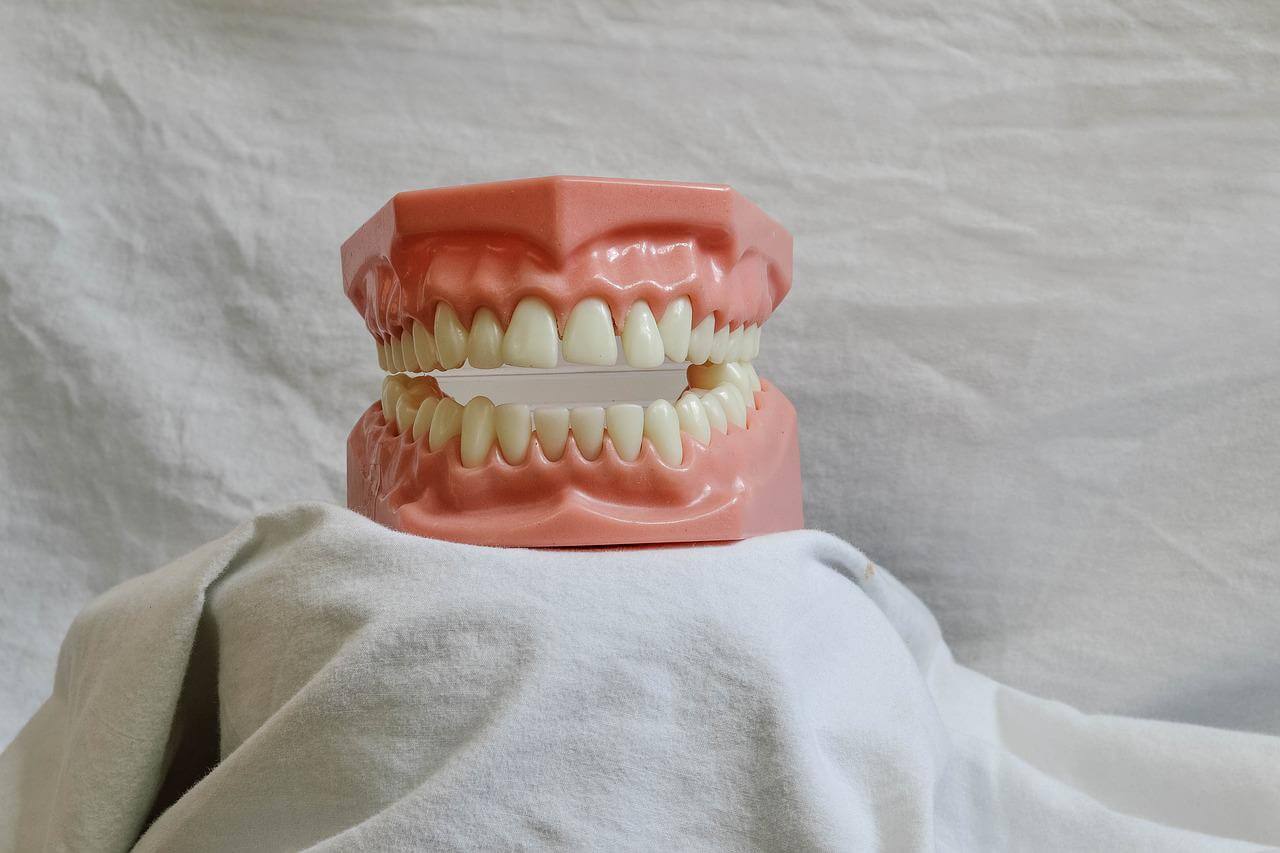
Teeth and Gums
Taking care of our teeth and gums plays a crucial role in maintaining overall health. A good oral hygiene routine not only prevents tooth decay and gum disease but also contributes to our overall well-being. This article offers essential tips on how to maintain healthy teeth and gums through daily practices, food choices, and risk prevention strategies.
The importance of oral hygiene cannot be overstated, as it serves as the foundation for a healthy and confident smile. Implementing daily practices such as brushing, flossing, and regular dental check-ups will greatly contribute to the longevity and health of your teeth and gums. Additionally, making smart food choices and being aware of risk factors can help prevent potential dental issues before they arise.
The questions surrounding oral health are endless, but by following the advice provided in this article, you will have a head start in maintaining a beautiful smile. Remember to stay diligent with your daily oral care routines and keep your dentist’s appointments to ensure the best possible outcome for your teeth and gums.
Key Takeaways
- Daily oral care practices are essential for maintaining healthy teeth and gums
- Making smart food choices can prevent dental issues and promote oral health
- Awareness of risks and prevention strategies contributes to a brighter and more confident smile
Importance of Oral Hygiene
Maintaining good oral hygiene is essential for healthy teeth and gums, as well as overall wellness. Healthy teeth not only allow us to eat and speak properly, but they also contribute to our overall appearance and confidence. So, why is oral hygiene so crucial, and what can we do to ensure our mouths stay in tip-top shape?
Oral health is important because it impacts our general health and well-being. A lack of oral hygiene can lead to a build-up of bacteria and plaque, which can cause various dental problems such as tooth decay and gum disease. In turn, these issues may contribute to other health problems like heart disease, stroke, and diabetes.
Consistent oral hygiene practices are key to preventing such problems. Brushing your teeth with fluoride toothpaste twice a day for about two minutes, and flossing daily, ensures that plaque doesn’t build up on your teeth. Plaque is a thin film of bacteria that forms on your teeth when they’re not cleaned properly. It is the leading cause of gum disease and tooth decay.

Gum disease
Seeing your dentist regularly is another essential aspect of maintaining oral wellness. Not only can they help identify any issues early on, but they can also give personalized advice and guidance on how to care for your teeth and gums at home.
In conclusion, oral hygiene plays a crucial role in preserving the health of our teeth, gums, and overall well-being. By incorporating daily habits like brushing, flossing, and visiting the dentist, we can ensure a brighter, healthier smile for years to come.
Daily Practices for Healthy Teeth and Gums
Proper Brushing Technique
A key component in maintaining healthy teeth and gums is the way you brush your teeth. It is important to choose the right toothbrush and toothpaste that work for you – this could be a manual or electric toothbrush, with soft bristles preferred by most dentists. Make sure to use a fluoride toothpaste that helps strengthen the enamel and protect against cavities.
When brushing, hold the toothbrush at a 45-degree angle to the gum line, gently moving it back and forth in short strokes. Clean not only the outer surfaces of the teeth but also the inner surfaces and chewing surfaces. Don’t forget to brush your tongue, as this helps remove plaque and bacteria that can contribute to bad breath. Dentists generally recommend brushing your teeth for two minutes, twice a day.
Essentiality of Flossing
Flossing is a crucial part of oral hygiene practices that many people overlook. Regular flossing helps remove food particles and plaque that brushing alone might miss. It is advised to floss at least once a day using dental floss or an interdental brush – whichever works best for you.
To floss effectively, take a piece of floss approximately 30cm to 45cm in length, and wrap it around your fingers, keeping about 3cm to 4cm of floss taut between them. Gently slide the floss between the teeth, reaching as far down into the gum line as possible. Use an up-and-down motion with 8 to 10 strokes between each tooth to dislodge any buildup.
Apart from practicing proper brushing and flossing techniques, it is crucial to schedule regular dental checkups at least twice a year. Dentists can identify and address potential issues before they escalate. Remember, prevention is always better than cure, so prioritize your oral hygiene practices on a daily basis to maintain healthy teeth and gums.
Food Choices and Oral Health
Are you aware that your food choices can have a significant impact on your oral health? Eating the right foods can help you maintain healthy teeth and gums. Let’s dive into some of the best foods that can promote oral health and which ones you should avoid.
A well-balanced diet is essential for maintaining healthy teeth and gums. Include calcium-rich dairy products such as milk, cheese, and yoghurt in your diet as they strengthen tooth enamel. Did you know that calcium is vital for the development and maintenance of healthy teeth and supporting jawbones? Not a fan of dairy? No worries, as calcium can also be found in foods such as almonds, leafy greens, and fortified plant-based milk. Oh, and don’t forget to drink plenty of water – it’s always beneficial for your overall health, including your mouth.
Consider snacking on crunchy fruits and vegetables like apples, carrots, and celery. They help increase saliva production, which naturally rinses away plaque and food particles. Additionally, these fibrous foods can serve as a natural toothbrush, helping to scrub plaque off your teeth as you chew. Plus, it’s an excellent excuse to munch on a tasty snack!
Now, let’s talk about what to avoid. Sugary sweets and acidic drinks, like soft drinks or fruit juices, can be damaging to your teeth, leading to tooth decay and gum disease over time. Sugars from sweets and other carbohydrate-rich foods provide fuel for the harmful bacteria in your mouth. When these bacteria feast on sugar, they produce acids that erode tooth enamel, resulting in cavities. So, limit your intake of sugary treats and sip on water throughout the day to dilute and wash away these nasty acids.
Here are some quick tips to make your food choices better for your oral health:
- Drink water whenever you can
- Munch on crunchy fruits and vegetables
- Include calcium-rich foods in your diet
- Steer clear of excessive sugary treats
- Limit acidic drinks like soft drinks and fruit juices
Remember, what you eat can affect more than just your waistline – it’s crucial for the health of your teeth and gums too!
Risks and Prevention Strategies
Common Oral Diseases
Oral health is crucial for maintaining overall well-being, but there are various risks and diseases that can affect our teeth and gums, regardless of age. The most common oral diseases include tooth decay, gum disease (gingivitis and periodontitis), and tooth loss, with cavities being a common indicator of deteriorating oral health.
Plaque, a sticky, colourless film of bacteria, forms on our teeth and can lead to infections. This can be mitigated by daily oral hygiene practices like brushing, flossing, and regular check-ups with a dentist. As for children’s teeth, it’s essential to establish healthy habits early, instill proper oral care routines, and monitor their sugar intake.
On the other hand, older adults might face a higher risk of gum disease and tooth loss due to age-related factors, such as arthritis, which can make it challenging to maintain their dental care. In these instances, electric toothbrushes or dental aids could be beneficial for providing the necessary oral care.
Smoking and Alcohol: Oral Health Hazards
Lifestyle choices like smoking, tobacco use, and alcohol consumption are significant risk factors for oral health concerns. According to the American Dental Association, smoking can increase the likelihood of developing gum disease, oral cancer, and tooth loss. Additionally, excessive alcohol intake weakens enamel and increases the chances of developing cavities.
As simple as it sounds, quitting smoking and reducing alcohol consumption can significantly improve oral health. Replacing tobacco products with healthier options and drinking alcohol responsibly are vital steps towards healthier teeth and gums.
In conclusion, maintaining oral health is essential, as our daily choices can significantly impact our teeth and gums. By remaining cognizant of risks, implementing proper hygiene practices, and making healthier lifestyle choices, it’s possible to enjoy a lifetime of healthy teeth and gums. Remember to consult a dental professional regularly for check-ups and advice on oral health.
Frequently Asked Questions
What daily steps can improve oral health?
To maintain healthy teeth and gums, it’s important to brush your teeth twice a day for about 2 minutes with fluoride toothpaste. This helps to remove plaque and prevent tooth decay. Additionally, flossing between your teeth daily can help remove any food particles trapped between them, reducing the risk of gum disease.
What foods are best for strong teeth and gums?
Eating a balanced diet rich in fruits, vegetables, and dairy products can contribute to strong teeth and gums. Foods high in calcium, such as milk and cheese, can help strengthen the enamel on your teeth. Crunchy fruits and vegetables like apples and carrots can help naturally clean your teeth and stimulate saliva production, which can neutralize harmful acids.
Which dental products should be used for oral hygiene?
Selecting the right dental products can enhance your daily oral hygiene routine. Use a soft-bristled toothbrush and fluoride toothpaste to effectively remove plaque from your teeth. Dental floss or interdental brushes can help clean your teeth, while mouthwash can be used to freshen your breath and fight bad bacteria. Make sure to replace your toothbrush every three months.
What habits should be avoided for healthier teeth?
Avoiding excessive consumption of sugary foods and drinks can help prevent tooth decay. Limiting the use of tobacco products and drinking alcohol in moderation can also contribute to healthier teeth and gums. Don’t forget to avoid using your teeth as tools, like opening bottles or packages, as this can cause damage to your teeth.
How can we ensure dental health without visiting the dentist?
Although regular dental check-ups are essential in maintaining good oral health, there are ways to take care of your teeth and gums between visits. Maintain a consistent oral hygiene routine, including brushing, flossing, and using mouthwash. Eating a balanced diet and avoiding harmful habits can also help to keep your teeth and gums healthy.
How can oral hygiene routines be optimized?
Optimizing your oral hygiene routine involves sticking to a consistent schedule and using appropriate techniques. Ensure that you are brushing for at least 2 minutes, using gentle circular motions to clean all surfaces of your teeth. Floss daily, focusing on each gap between your teeth. Finally, using an antibacterial mouthwash can provide added protection against plaque and bacteria.






